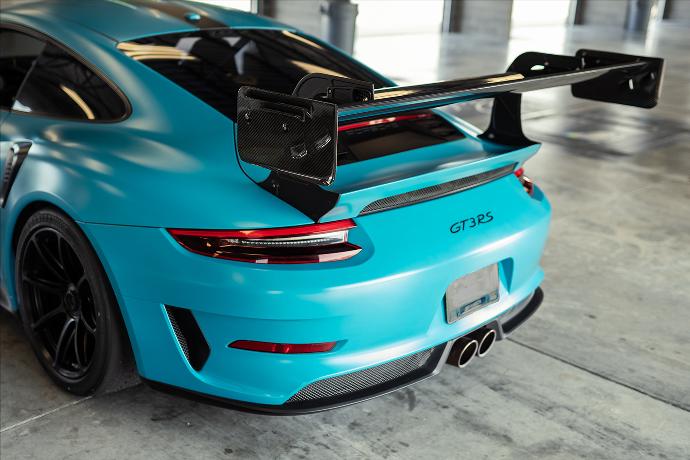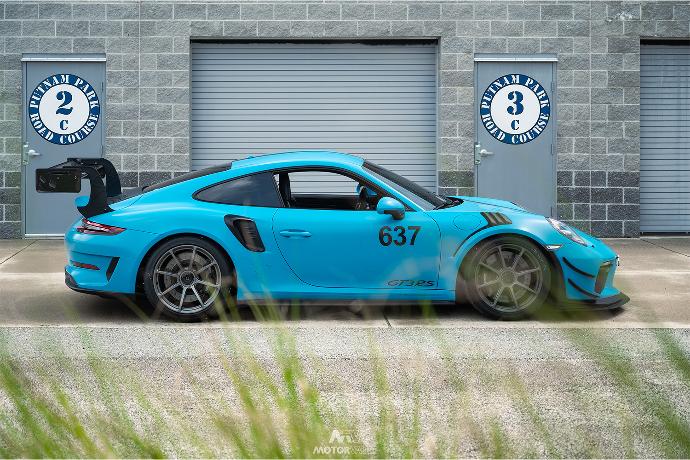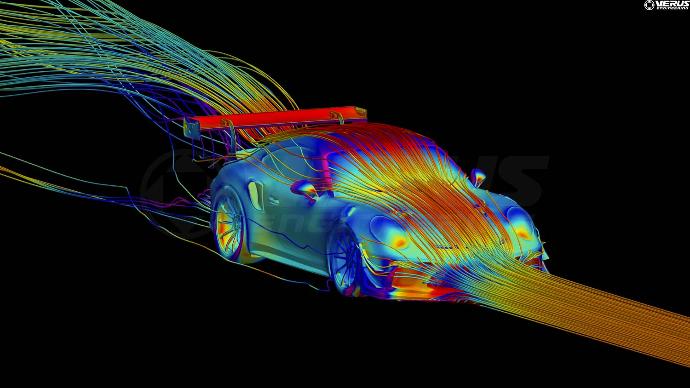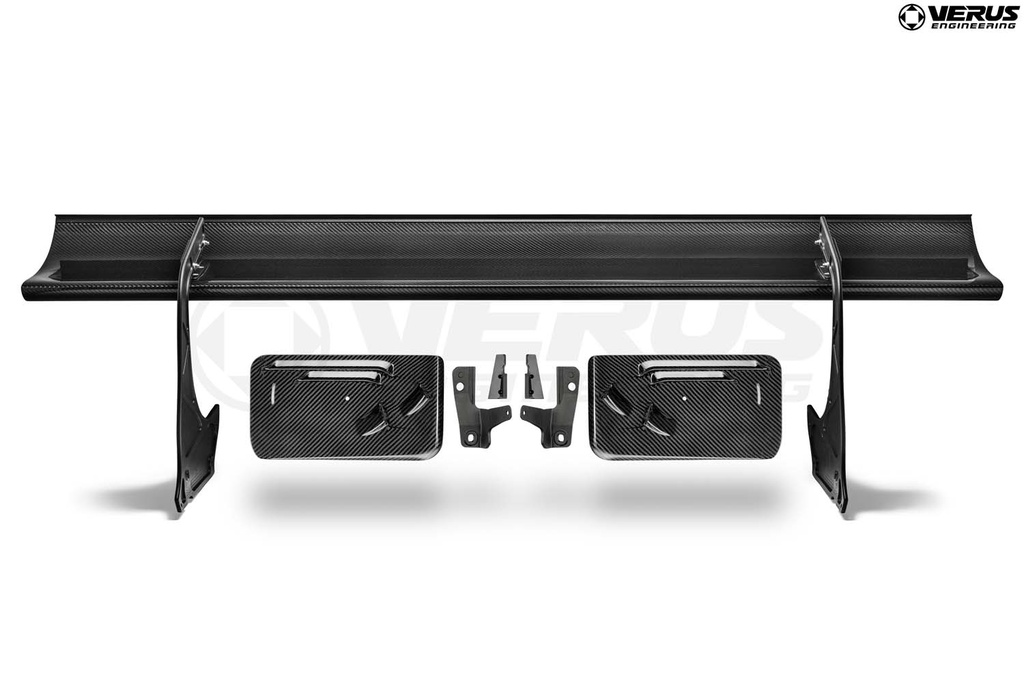Rear Wing Kit - Porsche 991.1/991.2 GT3RS and GT2RS







OVERVIEW
Dramatically improve rear-end grip at speed with our 300mm chord, swan neck wing. The wing and full aero kit were designed in CFD to greatly improve the vehicle's performance on and off the track.
The wing is a large driving force behind the improvement in downforce, coupled with the front splitter it transforms the GT3RS into a track weapon.
The rear wing was designed, iterated, and tested in CFD and a wind tunnel. All component mounting was designed off OEM scans and requires no permanent modification to the rear hatch of the vehicle.
The uprights are CNC machined from 6061-T6 aluminum and were FEA analyzed to ensure strength was kept high while weight was minimized.
WHAT IS INCLUDED
- Carbon Rear Wing, 300mm Swan Neck
- Carbon Vented Endplate (2)
- Machined 6061 Swan Neck Upright (2)
- Machined 6061 Chassis Mount Bracket (2)
- Machined Delrin Chassis Stop (2)
- Gurney Flap
- 3m VHB Double-Sided Tape, Gurney Flap
- Hardware Kit, Includes All Hardware Necessary for Install
Features:
Rear Wing
2x2 Twill, 3k, Pre-Preg Carbon Fiber
Cured in an AutoClave
Carbon Inner Rib for Strength
Carbon Endplates
The Wing Itself Weighs in at Under 9 lbs
Mounting
Machined 6061-T6 Aluminum Mounts and Uprights
Military Spec (NAS) Hardware On Wing
Bolts on like OEM
Zero Permanent Modifications to the Chassis
Chassis Brace to Ensure Hatch will not Fail
Features:
Rear Wing
2x2 Twill, 3k, Pre-Preg Carbon Fiber
Cured in an AutoClave
Carbon Inner Rib for Strength
Carbon Endplates
The Wing Itself Weighs in at Under 9 lbs
Mounting
Machined 6061-T6 Aluminum Mounts and Uprights
Military Spec (NAS) Hardware On Wing
Bolts on like OEM
Zero Permanent Modifications to the Chassis
Chassis Brace to Ensure Hatch will not Fail

Specifications:
- CFD Optimized Airfoil
- Highly Efficient (Great L/D)
- 15 Total Adjustment Angles (-1 to 14 degrees)
- Lightweight and High Strength
- Capable of Generating and Handling Over 700lbs of Downforce at 120MPH
- Swan Neck Design for Improved Efficiency from the Wing Element
- OEM Bolt-On Install
Specifications:
- CFD Optimized Airfoil
- Highly Efficient (Great L/D)
- 15 Total Adjustment Angles (-1 to 14 degrees)
- Lightweight and High Strength
- Capable of Generating and Handling Over 700lbs of Downforce at 120MPH
- Swan Neck Design for Improved Efficiency from the Wing Element
- OEM Bolt-On Install

Science:
The Verus Engineering 300mm Rear Wing kit was specifically designed for the Porsche enthusiast who wants more rear-end downforce for track days. The airfoil profile was run through ANSYS Adjoint solver to improve its efficiency. Through this iterative improvement process, we were able to improve the wing profile's performance. The wing was specifically placed to improve performance and create a good aero balance with the rest of the Verus Engineering Ventus 2 kit. The Ventus 2 kit produces a significant increase in downforce generated vs. the factory car and will reduce lap times substantially.
Our CFD data and our real-world experimental data matched well with the rear wing. The wing hit all the major goals we set forth to achieve first in our CFD simulations and then with our real-world testing. The strong correlation between CFD data and real-world testing validates both our CFD analysis approach and the wing’s performance.
Science:
The Verus Engineering 300mm Rear Wing kit was specifically designed for the Porsche enthusiast who wants more rear-end downforce for track days. The airfoil profile was run through ANSYS Adjoint solver to improve its efficiency. Through this iterative improvement process, we were able to improve the wing profile's performance. The wing was specifically placed to improve performance and create a good aero balance with the rest of the Verus Engineering Ventus 2 kit. The Ventus 2 kit produces a significant increase in downforce generated vs. the factory car and will reduce lap times substantially.
Our CFD data and our real-world experimental data matched well with the rear wing. The wing hit all the major goals we set forth to achieve first in our CFD simulations and then with our real-world testing. The strong correlation between CFD data and real-world testing validates both our CFD analysis approach and the wing’s performance.


























